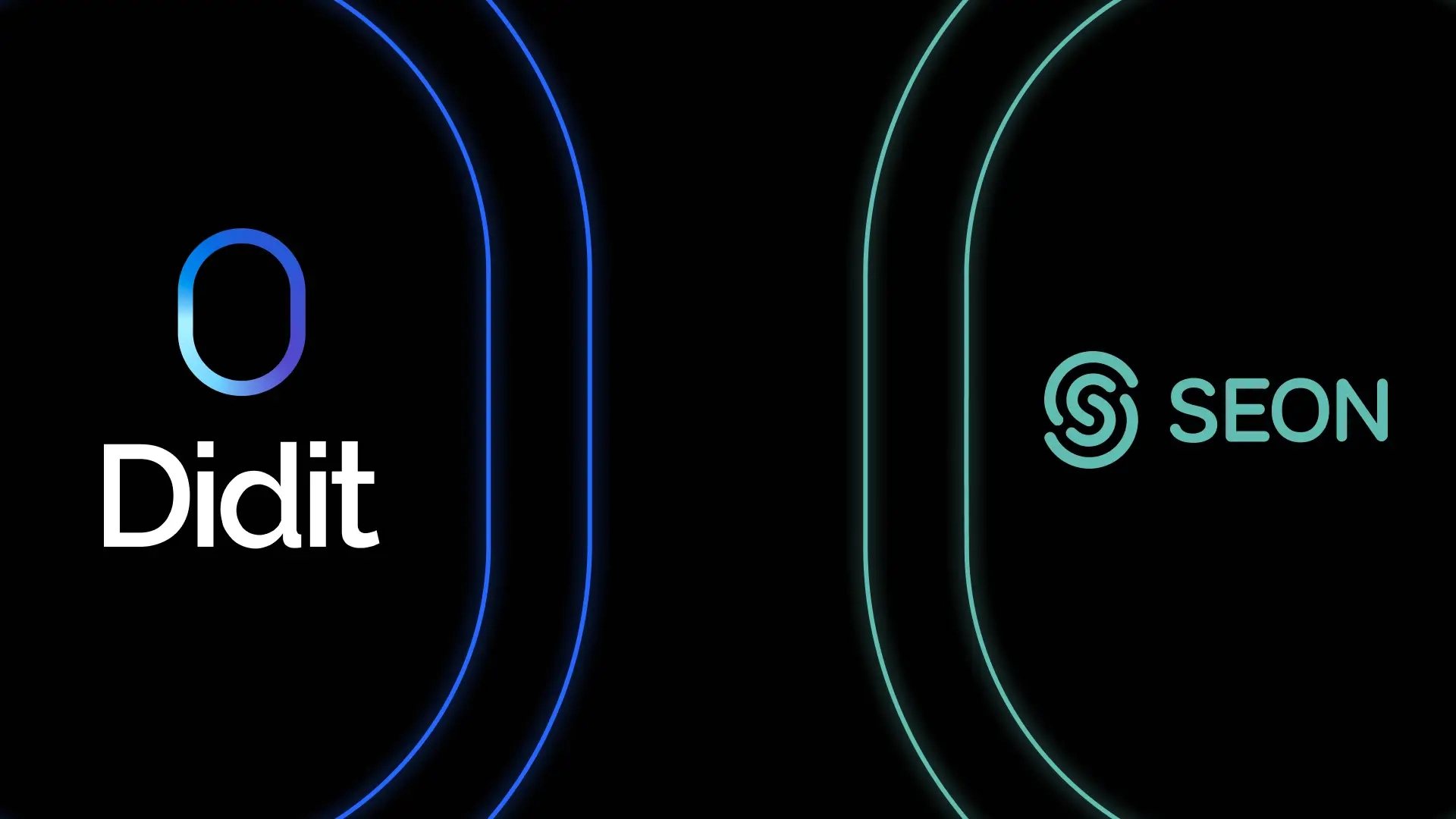사기 방지 및 신원 확인 솔루션 시장은 수많은 옵션을 제공합니다. 최근 몇 년간 가장 두드러진 참여자 중 하나는 SEON으로, 그들의 플랫폼은 여러 산업에서 실시간 사기 탐지를 혁신했습니다.
그러나 많은 기업의 요구사항이 진화했습니다. 의무 대상 기관들은 사기 방지 및 KYC 솔루션이 더 정확하고, 적응 가능하며, 무엇보다도 저렴해야 한다는 것을 이해하고 있습니다. 따라서 많은 기관들이 시장에서 SEON의 대안을 찾기 시작할 수 있습니다.
주의: 이 비교(Didit vs SEON 및 사기 방지 및 KYC의 최고 대안)의 정보는 온라인 연구와 다양한 플랫폼의 사용자 의견에서 나온 것입니다. 이 콘텐츠는 2024년 마지막 분기에 업데이트되었습니다. 오류가 있다고 생각하거나 특정 수정을 요청해야 하는 경우 저희에게 연락해 주세요.
SEON의 주요 특징: 사기 방지 시장에서 무엇을 제공하나요?
SEON은 디지털 발자국 분석, 인공 지능, 기계 학습을 결합한 플랫폼을 기반으로 사기 방지 시장에서 명성을 쌓았습니다. 그들의 접근 방식은 90개 이상의 디지털 및 소셜 신호와 함께 심층 기기 인텔리전스를 사용하여 모든 사용자 상호 작용을 검증하는 실시간 사기 탐지에 중점을 둡니다.
이 플랫폼은 API를 통한 통합 능력과 맞춤형 규칙 엔진으로 두각을 나타내며, 기업이 특정 요구 사항에 맞는 사기 방지 시스템을 구현할 수 있게 합니다.
| SEON의 강점 | SEON의 약점 |
|---|---|
| ✅ 디지털 및 소셜 신호의 실시간 분석을 통한 완벽한 사기 방지 솔루션 | ✖ 솔루션 비용이 높아 월 $599부터 시작하는 Starter 플랜은 중소기업에게 부담될 수 있음 |
| ✅ API와 맞춤형 규칙 엔진을 통한 간단한 통합 | ✖ 가장 경제적인 플랜에서 사용자 수와 맞춤형 규칙의 제한 |
| ✅ 200개 이상의 국가에서 데이터 분석을 통한 글로벌 커버리지 | ✖ 특히 기술 경험이 없는 사용자에게는 초기 설정의 복잡성 |
Didit이 SEON을 이기는 부분: 무료이면서 품질 좋은 대안
현재의 사기 방지 및 신원 확인 시장은 효율성, 접근성, 보안을 결합한 접근 방식을 요구합니다. SEON이 이 분야의 주요 참여자 중 하나로 간주되어 왔지만, Didit과 같은 솔루션들이 무료, 무제한, 영구적인 신원 확인 서비스를 통해 KYC 및 AML 규정 준수 산업에 혁명을 일으키기 위해 등장했습니다.
Didit의 경쟁 우위는 SEON에 비해 상당합니다:
- Didit은 완전히 무료인 신원 확인 서비스(KYC 확인당 $0.00)와 AML 확인당 $0.30의 고정 가격을 제공하며, 월별 비용이나 장기 약정이 없습니다. 이 모델은 월 $599부터 시작하는 SEON의 Starter 플랜과 대조적으로, 모든 규모의 기업이 신원 확인 기술에 접근할 수 있게 합니다.
- Didit의 재사용 가능한 신원 기술은 사용자가 확인된 디지털 ID(Didit ID)를 생성할 수 있게 하여 향후 KYC 프로세스에서 재사용할 수 있게 하며, 이는 온보딩 시간을 크게 줄이고 사용자 경험을 개선합니다. SEON은 이와 유사한 기능을 제공하지 않습니다.
- Didit은 NFC 확인을 얼굴 인식 및 문서 확인과 함께 단일 자동화 흐름에 기본적으로 통합합니다. 이러한 기술의 조합은 KYC 프로세스 동안 최대 보안을 보장하는 반면, SEON은 디지털 및 소셜 신호 분석에 더 중점을 둡니다.
- Didit의 KYC 소프트웨어는 주소 확인 및 문서 모니터링을 포함하여 규제 준수를 위한 더 완벽한 솔루션을 제공합니다.
- Didit의 선택적 실시간 AML 스크리닝 서비스는 프로세스에 추가 보안 계층을 추가할 수 있게 하며, SEON의 기능과 비교할 만하지만 훨씬 낮은 비용으로 제공됩니다.
SEON의 대안을 찾아야 하는 이유: Didit, 시장 최고의 KYC 솔루션
SEON이 강력한 사기 방지 플랫폼을 제공하지만, 시장의 요구는 더 민첩하고 무엇보다도 접근하기 쉬운 솔루션으로 진화했습니다.
SEON의 높은 비용은 대안을 찾는 주요 이유 중 하나입니다. 월 $599부터 시작하는 Starter 플랜으로 인해 많은 기업, 특히 스타트업과 성장 중인 비즈니스는 이 투자를 정당화하기 어려워합니다. 대조적으로, Didit은 220개 이상의 국가와 지역에서 완전히 무료인 KYC 서비스를 제공하여 신원 확인에 대한 접근을 민주화합니다.
SEON의 설정 및 사용의 복잡성도 장애물이 될 수 있습니다. 여러 사용자들이 플랫폼이 "초보자에게 위협적"일 수 있다고 보고했으며, 이는 가파른 학습 곡선과 잠재적으로 덜 효과적인 구현으로 이어질 수 있습니다.
또한, SEON의 가장 경제적인 플랜의 제한사항, 예를 들어 제한된 사용자 수(Starter 플랜에서 10명)와 맞춤형 규칙(같은 플랜에서 50개)은 성장 중인 기업이나 더 복잡한 요구사항을 가진 기업에게는 불충분할 수 있습니다.
Didit의 재사용 가능한 KYC 시스템 혁신은 사용자가 Didit ID를 생성하고 온보딩 시간을 단 3초로 줄일 수 있게 하며, 이는 SEON의 제품군에 없는 패러다임의 변화를 나타냅니다. 이 기능은 사용자 경험을 개선할 뿐만 아니라 기업의 규제 준수 프로세스를 크게 최적화합니다.
요약하면, SEON이 강력한 사기 방지 솔루션을 제공하는 반면, Didit은 더 접근하기 쉽고, 혁신적이며, 사용자 중심적인 대안으로 제시되며, 특히 효율적이고 경제적인 KYC 및 AML 솔루션을 찾는 기업에게 매력적입니다.
SEON에 매달 $599(또는 그 이상)을 지불하면서 그 돈을 통째로 절약할 수 있다는 사실, 알고 계셨나요? SEON의 과도한 요금제에서 Didit으로 전환한 기업들은 KYC 인증 비용에서 매달 최대 70%까지 절감하고 있습니다. 우리의 기술이 기존 플랫폼의 복잡함을 어떻게 단순화하는지 이미 확인하셨다면, 이제는 접근성 부족이 당신에게 정확히 얼마나 비용을 초래하고 있는지 계산해볼 시간입니다. Didit의 ROI 계산기는 SEON의 제한적인 요금제가 예산을 얼마나 소모하고 있는지, 그리고 Didit이 그 불필요한 비용을 어떻게 즉각적인 월별 절감으로 전환할 수 있는지를 몇 초 만에 보여드립니다. 복잡한 설정과 인위적인 제한은 이제 그만: 무료 접근, 무제한 확장성, 즉각적인 ROI.
현재 데이터를 입력하고, 기존 검증 모델의 경제적 장벽을 제거하면 얼마나 절약할 수 있는지 정확히 확인해보세요.

